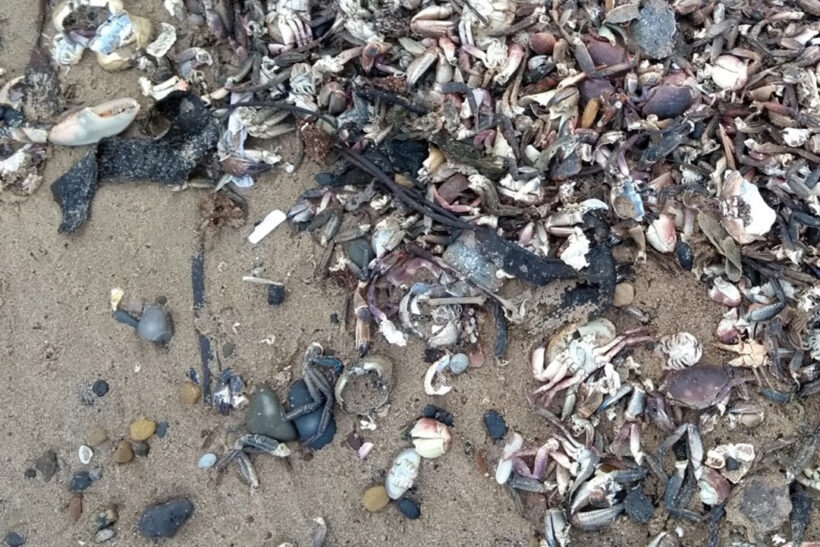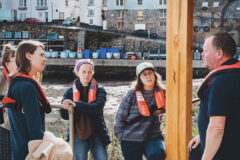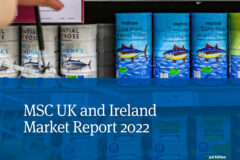Defra will not carry out any further investigations into the cause of shellfish deaths in the North East of England, and there is ‘no question’ of the government offering any financial support or compensation to fishermen in the region, reports Tim Oliver.
The decision was announced in a letter from Defra secretary Thérèse Coffey to Sir Robert Goodwill, chair of the Environment, Food and Rural Affairs (EFRA) Committee, which has been closely following the shellfish die-offs.
In her letter to Sir Robert, Thérèse Coffey noted the findings of the independent expert panel that ‘a novel pathogen is about as likely as not to have caused the crustacean mortality event’.
She told the EFRA chair: “Given the extent of the analytical work already undertaken, and further advice, I have decided that it is highly unlikely that we will find the cause and so no further analysis will be undertaken by the government.”
She said she had asked Cefas to be ‘engaged promptly if a similar event occurs’.
With respect to the economic impact of the die-offs, she said landings data from North Eastern IFCA in September 2022 ‘indicated, at a regional scale, landings in late 2021 were broadly in line with historic data and a significant reduction in landings in October and November 2021 were not observed’.
She continued: “This does not preclude the possibility that some highly localised fishing grounds suffered significant mortalities. The stock monitoring report also found, as the 2022 season progressed, lobster landings at a regional level were in line with seasonal expectations.
“There is no question of the government providing any compensation or specific support, however the UK government currently provides a range of support to the English seafood sector through the Fisheries and Seafood Scheme (FaSS) and the £100m UK Seafood Fund.”
She said FaSS had provided £2.2m to seafood businesses in the North East, and is open for applications now.
The industry was outraged by the letter. Hartlepool fisherman Stan Rennie, chairman of Hartlepool Boat Owners’ Association and a leading player in the industry’s campaign for a full investigation into the die-offs, said the government did not want to carry out a full investigation because it feared it would prove the die-offs were caused by toxic dredge spoil and jeopardise the Tees Freeport project (see below).
Joe Redfern of the North East Fishing Collective, who has played a leading role in trying to get the die-offs fully investigated, tweeted: “Disappointment doesn’t quite cover it. I am livid at the response from Thérèse Coffey to MP Goodwill. We have been let down by the government. No further tests, no further sampling, no support based on an inaccurate stock assessment produced by NEIFCA.”
Thérèse Coffey’s letter to Sir Robert Goodwill was in reply to a letter from the EFRA Committee calling for Cefas to urgently undertake further analysis with regard to the theory that an unknown pathogen could be the cause (Fishing News, 9 February, ‘Defra told shellfish deaths need urgent analysis’). The committee also highlighted the need for financial support for the industry.
After receipt of Thérèse Coffey’s reply, an Efra Committee spokesperson told Fishing News that the committee had ‘no immediate plans, but may return to this subject with Defra ministers during a future hearing’.
Industry ‘sacrificed to protect Freeport’

Stan Rennie: “Sealife is declining, fishing industry jobs are being lost, and boats are being forced to the wall.”
Hartlepool fisherman Stan Rennie (pictured left) said Thérèse Coffey’s ‘blinkered’ response to EFRA Committee chair Sir Robert Goodwill was ‘totally inadequate’ but was no surprise, and that the fishing industry was being sacrificed to protect the Tees Freeport project.
“Sealife is declining, fishing industry jobs are being lost, and boats are being forced to the wall, sold or for sale, all without any meaningful, truly independent government investigations taking place,” he said.
He said Thérèse Coffey has used the ‘non-evidence’ of the NEIFCA stocks report as part of her justification for carrying out no further investigation – but the IFCA had no real information on catches or effort in the die-off zone, and its figures included the catches of the nomadic super-crabbers that fished up to 90 miles offshore and landed into Hartlepool.
“Then they say, incredibly, that landings have increased so it’s not so bad – political spin at its finest!
“Over half the Hartlepool potting fleet has gone since the Orca dredge in September 2021 due to the ecosystem catastrophe that has killed – and still is killing – the North East and North Yorkshire coastal North Sea ecosystem. It is being spread rapidly by the tide, and is forcing the steep decline in the fishing industry and catches on the inshore grounds.”
He said the mass die-offs had never stopped, and had got ‘considerably worse’ since the Freeport dredging started on 1 September last year.
“North East potting grounds and prawn trawling grounds are being sacrificed to a cocktail of toxic filth, dredged up from sediment contaminated by the heavy chemical industry dumping 5,000t of chemical waste a day, for three decades or more, into the Tees,” said Stan Rennie.
“This is now being dredged for the first time, and the captured toxic chemicals trapped in the sediment are being dumped at sea, as the cheapest option to dispose of the poisoned Freeport and capital dredge spoil.
“The government and their agencies take us for fools. They haven’t committed to discovering the cause of the die-offs. They have carried out the bare minimum of testing of the river sediment for pyridine, heavy metals and PCBs and all the other harmful toxins.
“Coffey was right that they may never find the true cause – because they don’t want to find it, and they won’t investigate further in case it is found. There should be true, independent sediment testing to prove once and for all whether it is safe to dump at sea.”
He said the issue had been politicised by attacks on the industry by politicians and environmentalists. “They’ve nonstop put us down with their false theory that the cause of the eco-genocide is an algal bloom, adamant that they were right.
“Cefas and the Environment Agency used a photo of a scrap dust pollution incident in both of their reports to push the lie of red algae, before having to admit it was scrap dust. But the toxic local MPs still bleated the same old algae rubbish to take blame away from the dredging and bury the bad publicity to protect the Freeport.”
Stan Rennie said reports from independent scientists like Tim Deere-Jones and Gary Caldwell of Newcastle University showed very high levels of pyridine in the Tees, which is deadly to shellfish.
“The independent panel, with no further investigation, rejected the scientists’ findings, and did not speak to the fishermen and women who know the ground and sealife like the backs of their hands.
“And after also rejecting the algal bloom theory, they have now come up with a new cause – a brand new, unknown, undetectable pathogen that kills everything: porpoises, shellfish, seaweed, fish and mile after mile of barnacles and carbon-capturing kelp beds and kelp forests.
“What a load of bladderwrack! If that was the case, the worldwide risk of spreading the parasite should have urgently led to the die-off zone being closed to shipping.”
He said the can had once again been kicked down the road. Another 1.7m tonnes of toxic dredge spoil will be dumped and ‘to hell with the North East ecosystem, industry jobs and heritage, and coastal communities’.
“The North East Fishing Collective (NEFC) challenges the government to carry out true, independent testing of the Tees sediment and dumps for all harmful toxins, and to allow us to do the same testing by independent scientists.
“We fight on. The spoil toxic dumping grounds all need redredging, and the toxic lot dumped on the Freeport quay to give the ecosystem a chance to recover many decades sooner than it otherwise would. Those who have had jobs taken from them also desperately need financial support.
“A Judicial Review is required, and those who have then been proved to have failed in their duty of environmental protection should be brought to justice.”
Stan Rennie thanked the many people supporting the NEFC, and all those who had donated to the cost of independent testing and legal fees. He also thanked The Fishmongers Company, the Fishermen’s Mission and other groups for their support and generosity.
This story was taken from the latest issue of Fishing News. For more up-to-date and in-depth reports on the UK and Irish commercial fishing sector, subscribe to Fishing News here or buy the latest single issue for just £3.30 here.






